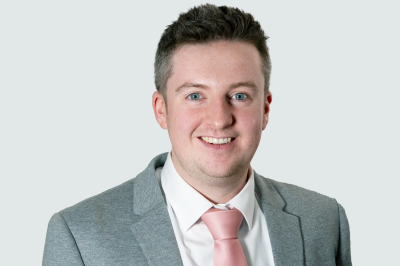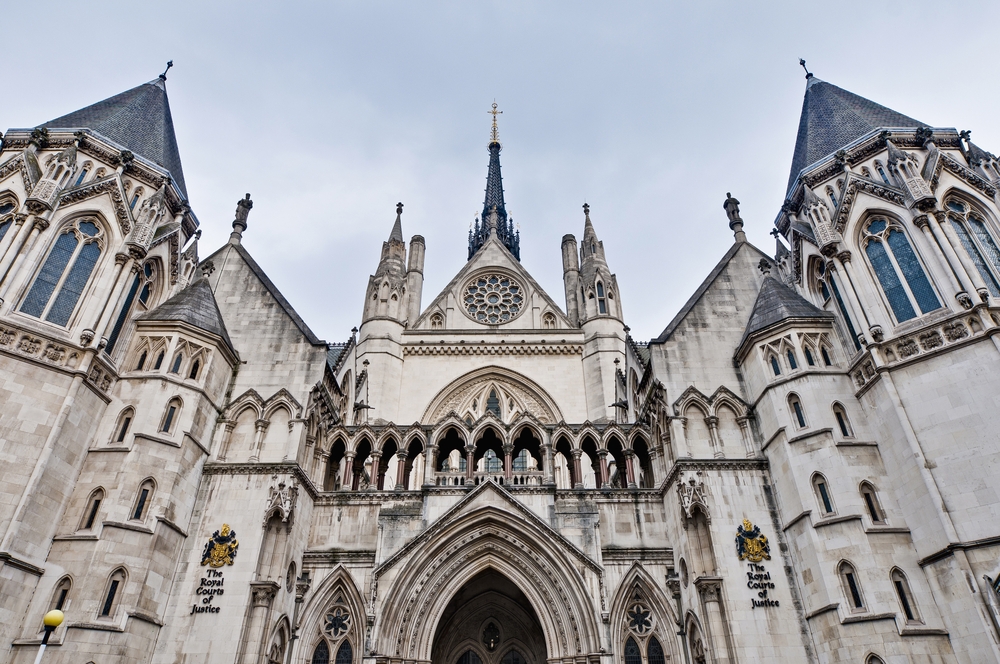- Home
- Resources
- Newsletters
- Unwrapping the UK...
Unwrapping the UK Supreme Court’s decision on AI inventorship: Thaler V Comptroller General
Posted on January 24, 2024
In December 2023, the UK Supreme Court handed down their decision in Thaler v Comptroller-General, finally resolving the question of whether an AI machine can be an inventor. Chris Lindsay and Tom Burt give us the details.
It seems fair to say that 2023 was the year of AI, with phrases like ChatGPT, DALL-E and Machine Learning (ML) becoming familiar to even the least tech savvy of us. Questions about AI even reached the UK Supreme Court, forcing the Justices to grapple with how the UK Patents Act, introduced in 1977, should apply to inventions that have been created by AI machines.
Background
In 2018, Dr Stephen Thaler filed two UK patent applications. In the first he claimed a novel food container, and in the second a novel flashing light. Both would seem to be patentable inventions in the UK, but these were no ordinary inventions.
In fact, according to Dr Thaler both inventions had been created by his AI machine DABUS (“Device for the Autonomous Bootstrapping of Unified Sentience”). In the UK, where the applicant for a patent is not the inventor, it is necessary to file a Statement of Inventorship, which identifies the inventor (or inventors) and briefly explains how the applicant became entitled to the invention. When the time came for the Statement of Inventorship to be filed, Dr Thaler duly named DABUS as the inventor, stating that “the applicant identified no person or persons whom he believes to be an inventor as the invention was entirely and solely conceived by DABUS". After an oral hearing, the UK Intellectual Property Office (UKIPO) decided that this contravened sections 7 and 13 of the UK Patents Act 1977.



Section 7(3) of the Act defines the inventor as “the actual devisor of the invention”, with an earlier case Yeda ([2007] UKHL 43) clarifying that this means “the natural person who came up with the inventive concept”. Section 13 provides that where the applicant is not the inventor, they must file a Statement of Inventorship. The UKIPO concluded that under these provisions, DABUS could not be the inventor as it is not a natural person, and so no inventor had been identified as is required by section 13. In addition, Dr Thaler’s ownership of DABUS did not give him a right to any patents for the inventions.
Both applications were therefore rejected by the UKIPO, a decision which Dr Thaler appealed to the UK High Court and Court of Appeal, both of which upheld the decision of the UKIPO.
Decision of the Court of Appeal
While the Court of Appeal dismissed the appeal by a majority of two to one, all three judges agreed that an AI machine was not a person and therefore could not be an inventor under the Patents Act. However, Lord Justice Birss and Lord Justice Arnold took opposing views on whether the patent applications should nevertheless have been granted. The majority held that since section 13(2) requires that the applicant names a natural person, naming DABUS did not meet this requirement and that therefore that the UKIPO was correct.
Dissenting, Birss LJ took the view that by identifying who he believed to be actual devisor of the invention, Dr Thaler had complied with the formal requirements of the Act, and that it was not for the UKIPO to examine the issue further. If the applicant names someone or something, natural or otherwise, who he believes is the inventor, then the application should proceed.

To the surprise of many, the Supreme Court allowed a further appeal, indicating that the Justices viewed this as a case of general public importance.
The UK Supreme Court
The Supreme Court heard oral arguments in March 2023 before a panel of five Justices. The Justices repeatedly pressed Dr Thaler’s counsel as to why Dr Thaler hadn’t simply named himself as the inventor. Dr Thaler’s counsel argued that doing so would require Dr Thaler to misrepresent himself, since he did not believe that he was the actual devisor of the invention.
In their decision issued just before Christmas, the Supreme Court unanimously dismissed Dr Thaler’s appeal, holding that for the purposes of a UK patent, an inventor must be a natural person. Writing for the Court, Lord Kitchin saw no reason to depart from the previous decision in Yeda, even though AI machines were not contemplated at the time. The Court also rejected Dr Thaler’s claim that he was entitled to any invention created by DABUS. This was because, the decision explained, since there was no inventor, no tangible property right resulted from the creation of the invention, and so there were no rights that could pass from DABUS to Dr Thaler. In particular, Dr Thaler’s ownership of DABUS did not give him to the right to any patents for inventions where DABUS was the named inventor.
The Supreme Court therefore held that the UKIPO was correct in rejecting the applications.

Comment
In dismissing the appeal, the Justices reached the decision that most patent practitioners expected. Allowing the appeal would have put the UK out of step with the approach in many other jurisdictions, including the US, Australia, New Zealand and (most importantly) the EPO. This fact was certainly not lost on the Court.
A key point was the Court’s unanimous view was Dr Thaler’s ownership of the AI machine did not give him the right to any patents for invention that it might create. This was because there is no tangible property right created when an invention is made (solely) by a machine. An important takeaway from this decision, therefore, is that if you create an invention using AI, the AI should be considered to be merely a tool used in the inventing process, even if a very sophisticated one. The human individuals involved in devising the invention should be named as the inventors, but the AI itself should not be considered or named as an inventor.
It is also important to note what this case was not about, namely whether AI inventions themselves are patentable. This is an entirely separate question, on which the law is developing rapidly. (A significant decision on the subject was issued by the UK High Courts shortly before the present Supreme Court decision, for example.) Rather, this case concerned how the law applies when the invention itself was created by AI. The Supreme Court decided that if an invention is created solely by AI, it cannot be protected by a patent. However, if an invention is conceived by a human inventor using AI as a tool, there should be no such problem. In this case, it seems that the Court may even have been happy for Dr Thaler to name himself as inventor, but he repeatedly declined to do so.
In the end, despite agreement that the provisions of the 1977 Act were not written with artificial intelligence in mind, the Justices were unmoved, saying “if patents are to be granted in respect of inventions made by machines, the 1977 Act will have to be amended”. It remains to be seen whether the UK Parliament will take them up on this offer.
We are a European firm and assist our clients to protect their IP rights in the UK, Europe and worldwide from our offices in the UK and The Netherlands and through our international network of trusted local attorneys.
Get in touch if you would like to discuss your innovations and brand protection further.